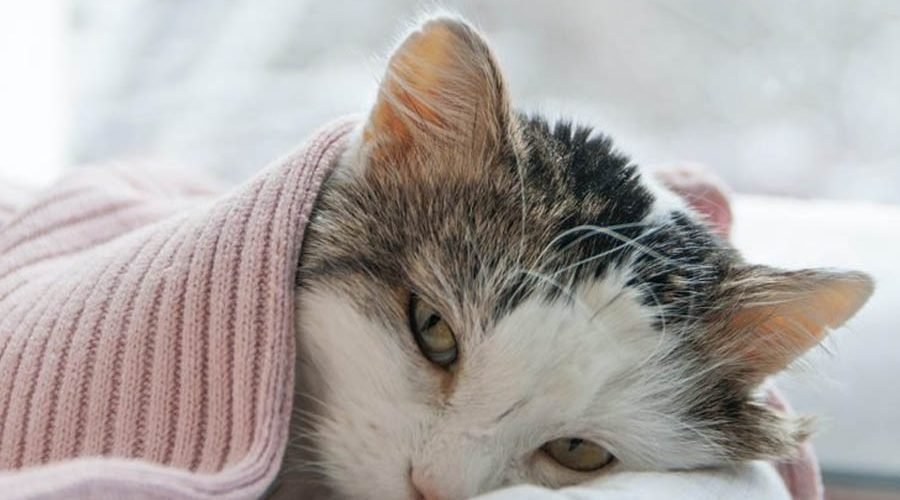If your pet is sick, you want to get them help as soon as possible. However, a high vet bill can be a deterrent from seeking medical care for your pet.
The good news is that there are ways to reduce your vet bills without compromising on treatment. Whether it’s through pet insurance, a payment plan, or other resources, there are options available for all owners.
Table of Contents
1. Seek advice from your vet
One of the best things you can do for your cat when they are sick is to seek advice from your vet. This will help you determine the right treatment for your pet and give you peace of mind.
A veterinarian is a medical professional that has to use their problem-solving skills, scientific aptitude, and analytical abilities to treat pets. They also need to be able to understand their animal’s unique needs and feelings.
Your vet may be able to provide you with a number of options for your sick pet, whether it is home care or referrals to specialty clinics. They will be able to help you make the best decisions for your pet’s treatment and be there with you during this difficult time.
They are a crucial part of the healthcare team and should be your first stop when you suspect something is wrong with your pet. They can help you assess the situation, recommend a course of action, and answer your questions afterward.
It’s important to choose a vet whom you trust. They should be able to explain their recommendations clearly, and you should feel comfortable leaving your pet in their care.
A good vet will also have a friendly and calm personality. This will make it easier for you to discuss difficult topics, such as end-of-life options.
Finally, your vet should have a pain-free philosophy when prescribing medications for your pet. This is especially important if your pet is undergoing treatment for a serious illness or injury.
If you’re worried about whether you can afford a visit to the vet, talk to your vet ahead of time and ask about their policy. They will likely be able to let you know if they have any special discounts or credit lines.
2. Consider alternatives
It can be hard to know what to do with a sick cat, and you might wonder about the best options. The first thing to do is get some advice from a vet. They will be able to advise you on the best course of action based on your pet’s condition and budget.
They will also be able to point you in the direction of alternative treatments which may be more cost-effective for your pocketbook.
The best bet is to ask your vet if they are able to recommend a local animal hospital or clinic in your area that might have a reduced price on vet services.
You might be pleasantly surprised to find that many of these establishments offer a range of options for your pet to receive the care they deserve. They might even have a payment plan that you can sign up for in advance so the treatment can be spread out over a period of time.
Getting your pet the best possible medical care is the best way to ensure they remain happy, healthy, and well into their senior years. The best way to do this is to ask your vet for advice and to be honest with them about your pet’s situation.
3. Ask for help
If you can’t afford a vet, there are several options available to help your cat get the care it needs. These include asking your local veterinarian, taking your pet to a shelter, and contacting neighborhood nonprofits or veterinary professionals for help.
If your cat’s condition is serious, you may be able to apply for grants or other financial assistance. These programs typically require an application and may take some time to process, so be patient.
You can also ask friends and family for help with vet bills. While this can be difficult, it’s better than putting your pet on the street or letting the situation worsen.
A sick cat can be hard on your finances, and the longer it goes without medical treatment, the more expensive the bill will likely be. This is why it’s important to seek advice from your vet as soon as possible so you can avoid the pitfalls of a prolonged illness and potentially costly follow-up appointments.
It’s also important to take care of your cat as best you can while he’s under the weather. This includes giving him plenty of food, water, and attention.
Providing your cat with a warm bed is another important step. The bed should be in a quiet spot with a heater and be away from distractions so your feline can get restful sleep.
In fact, a warm cat bed is one of the best things you can do for your ill cat in order to keep them comfortable and healthy while they recover.
Other things to consider when preparing your kitty for bed include finding a litter box that will be accessible when it’s time to use it and keeping the area clean and dry. The most important thing is to make sure your kitty gets the sleep and rest they need as they recover from their illness.
4. Try home remedies
Home remedies are a great way to relieve some of your cat’s illness symptoms. You can also use these methods as first aid until you can take your cat to the vet for more help.
For example, you can make a mixture of equal parts stinging nettle and marigold to help treat your cat’s respiratory issues. This tea can help clear the nasal passages and reduce discharge.
Another great way to help your cat recover is by boosting their immune system. Using probiotics is an excellent way to increase the number of good bacteria in their gut, which helps their body fight off infections better. Vitamin C can also help strengthen your cat’s immune system and decrease its chances of getting ill again.
While you’re at it, don’t forget to keep them hydrated as well! A sick cat can become dehydrated quickly, so they have enough water to drink daily.
One of the best ways to soothe your cat’s cough is to give them a warm bath or shower. You can add a few drops of essential oil to the water for relaxation.
If your cat is vomiting, make sure to contact your veterinarian immediately. They will need to rule out any serious causes, such as pancreatitis or gastrointestinal problems.
Your vet can prescribe medications for your cat to take at home. These can be oral tablets or a liquid formulation that can be given via a syringe. You can find instructions on how to administer these on separate handouts from your veterinarian.
5. Don’t delay
One of the best ways to make sure your cat is able to recover quickly is to seek advice from your vet as soon as you notice symptoms. This can help you avoid making any potentially serious mistakes that could lead to your pet’s condition getting worse or being aggravated further.
You should also watch for signs that your cat is not feeling well, such as vomiting or if they are showing pale gums and have blood in their vomit. These are warning signs that your cat is very sick and should not be ignored.
The most important thing to do when your pet is not feeling well is to get them some medication as soon as possible. This can be hard for a pet to take, so it’s best to choose the right time and administer the medicine in a gentle way, using positive reinforcement and a good deal of patience.
It is also vital to ensure your pet has sufficient food and water at all times. This is because a healthy cat will drink very little, and if you don’t supply them with adequate amounts, they can become dehydrated.
You should also be sure to keep your pet warm and dry, especially if they have a wound or are recovering from surgery. This is essential for them to heal properly. This can be achieved by keeping a comfortable blanket or towel in the room where they are being treated. You should also keep a bowl of fresh water near them at all times to ensure they are hydrated.





